Formula 1 News: Haas team reveals 2024 VF-24 renderings
MoneyGram Haas F1 Team today showcased the dynamic look of the VF-24 entry to be raced in the 2024 FIA Formula 1 World Championship by Nico Hulkenberg and Kevin Magnussen. The VF-24 will subsequently make its track debut at Silverstone Circuit on Sunday February 11 with Nico Hulkenberg charged with shakedown duties before the team heads to Bahrain for pre-season testing, February 21-23.
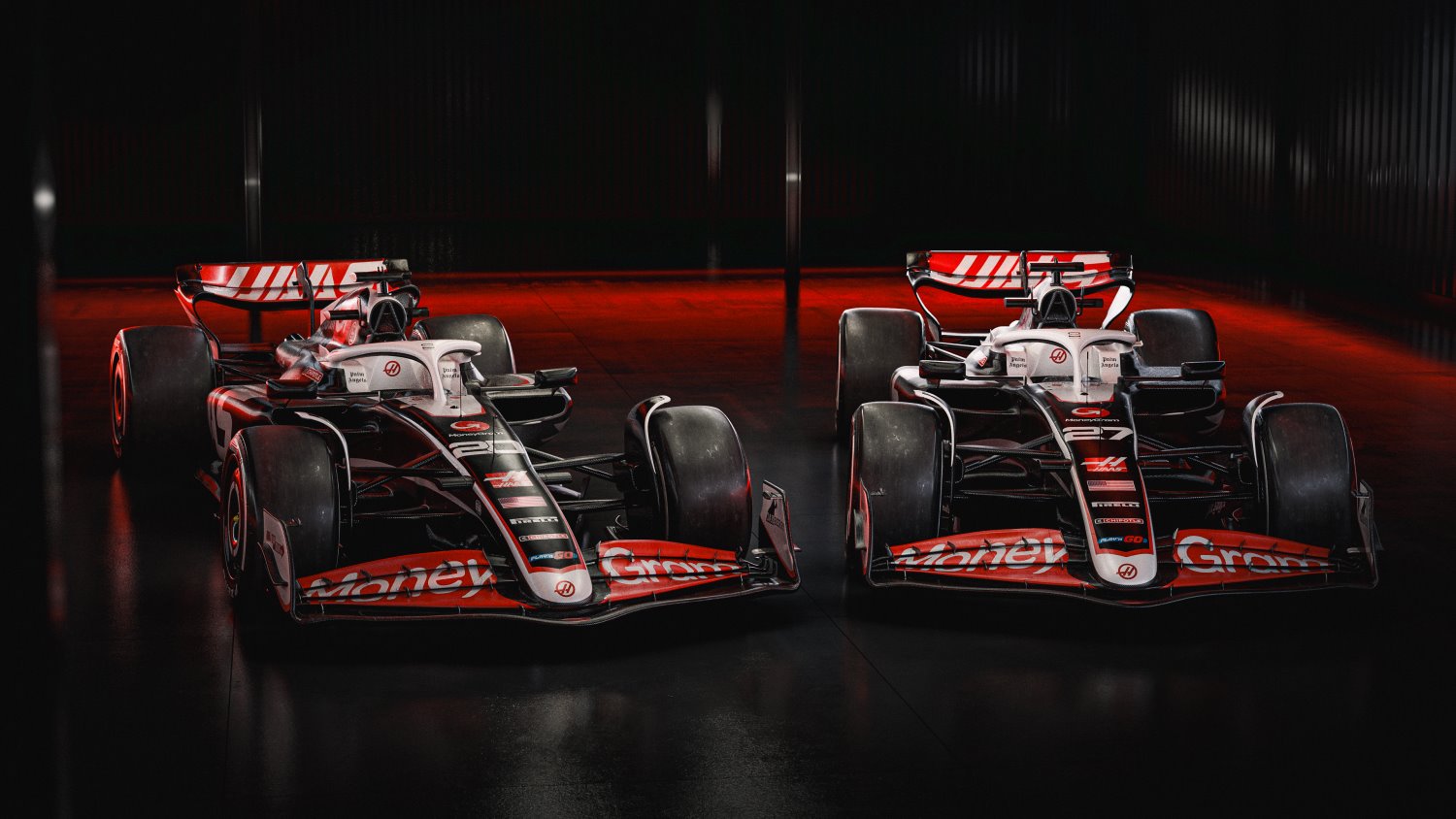
Releasing a series of digital renders of the VF-24 across the MoneyGram Haas F1 Team social media platforms, the VF-24 design is presented in an evolution of last year’s predominately black livery with accompanying red and white accents.
Title partner MoneyGram, a leading global financial technology company that connects the world’s communities, feature prominently on the engine cover and both front and rear wing, with Haas Automation – the global CNC machine tool company founded by team owner Gene Haas, maintaining its placement on the sidepods and rear wing. Haas Tooling, Palm Angels, Chipotle, OAKBERRY, Tricorp, TravisMathew, Alpinestars and Pirelli are all represented with logo placements on the VF-24 entry.
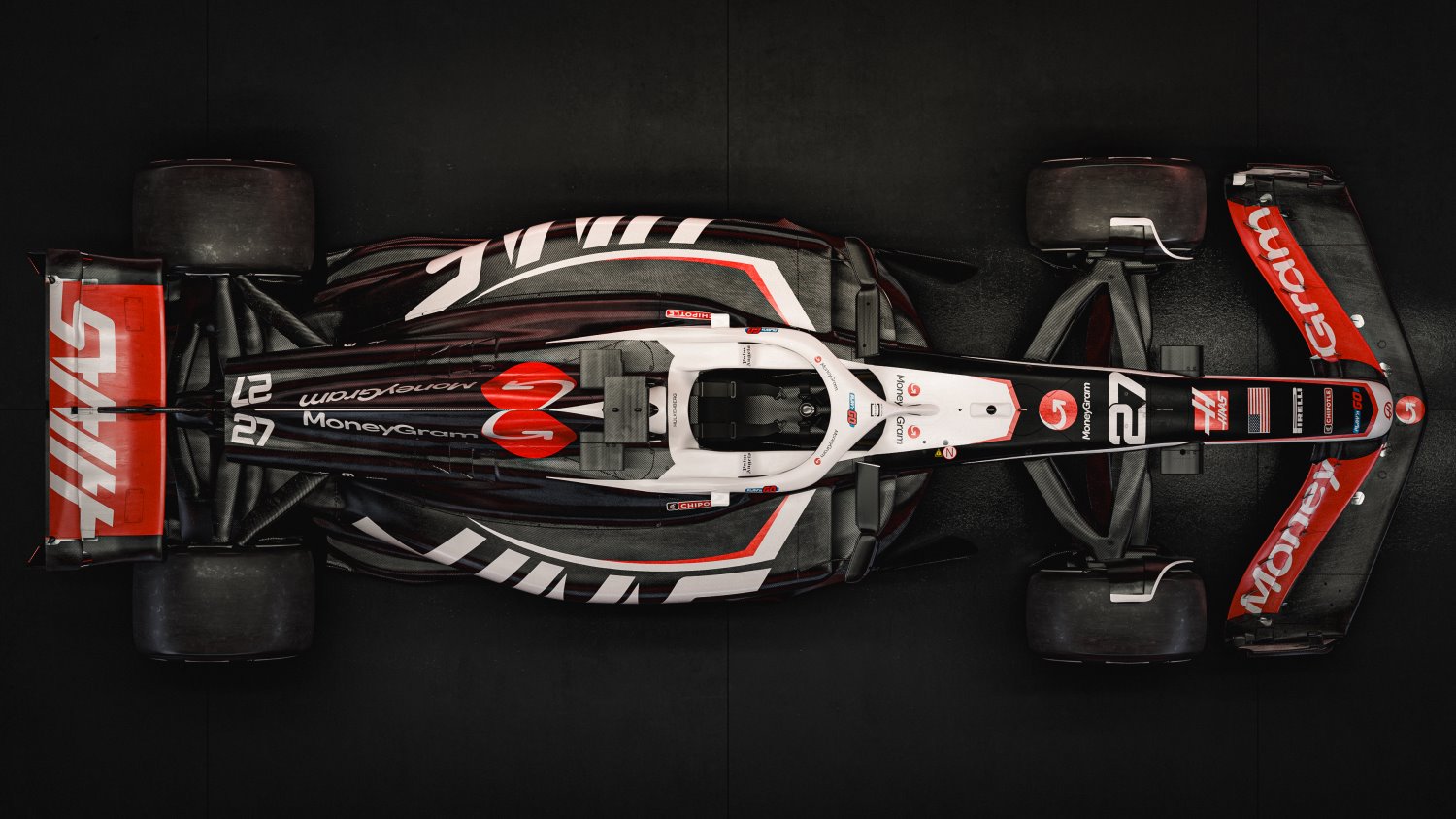
The 2024 season will also see existing partner Play’n GO, the global leader in supplying entertainment to the casino industry and the creator of some of the world’s most played online casino games, increase their partnership commitment with the team. This multi-year partnership will see additional branding for Play’n GO across the VF-24, team and driver assets.
“I’m looking forward to seeing the VF-24 running and racing – a sentiment I know I share with our partners and indeed the entire team,” said Gene Haas, Chairman of MoneyGram Haas F1 Team. “In Nico Hulkenberg and Kevin Magnussen, we also know we’ve got a great pair of drivers behind the wheel, their experience will prove invaluable again as we develop our program through the year. We’ve used the off-season to put the processes in place to be better and ultimately improve our overall performance. Soon we get to see how we’re doing.”
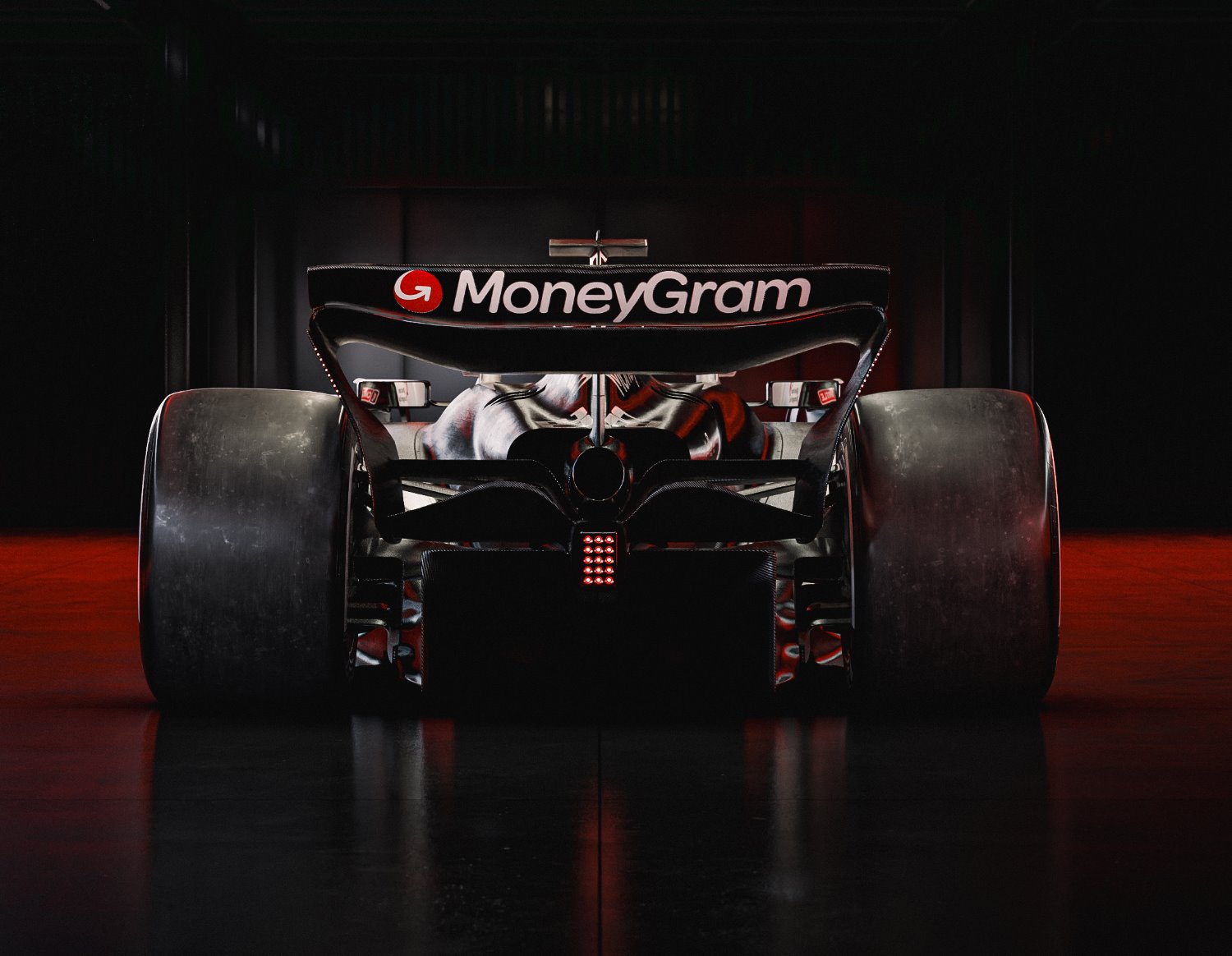
“As we head into our second year of title partnership with the team, we’re extremely proud that our name and logo are such an integral part of the beautifully designed VF-24,” said Alex Holmes, MoneyGram Chief Executive Officer. “Last year, our partnership helped MoneyGram to deliver cut-through branding, accelerate brand awareness and boost customer engagement, so we’re excited to see what this season has in store. With just about a month until the first race on the 2024 calendar, we can’t wait to cheer on the MoneyGram Haas F1 Team!”
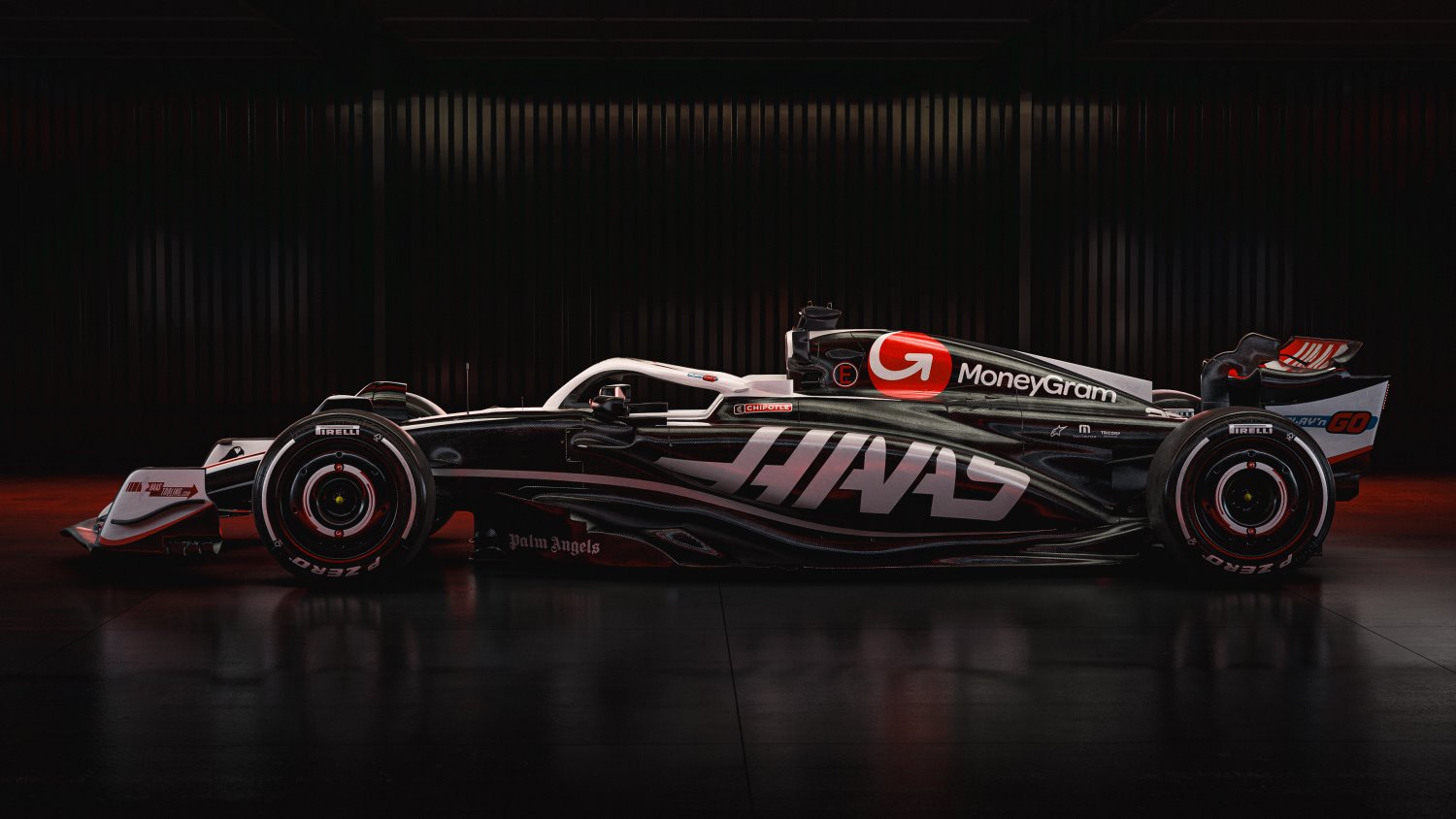
“We’re realistic about our expectations for the VF-24 to start but it’s still an exciting moment in any Formula 1 season to showcase the car,” commented Ayao Komatsu, Team Principal of MoneyGram Haas F1 Team. “There’s a lot of work ahead of us to make progress and increase our performance but everyone here is highly motivated and eager to get on track with the VF-24. I know we’ll be maximizing our time in Bahrain with all the various items we need to push through. Bottom line, we can’t wait to get going and get the season underway.”
Q&A with Ayao Komatsu – Team Principal, MoneyGram Haas F1 Team
Today we reveal digital renders of the VF-24 – the team’s entry in the 2024 FIA Formula 1 World Championship. Is it safe to say the concept for this overall design was founded within the team’s revised package on the VF-23 towards the end of last season?
“In terms of physical changes, as everyone knows, when we made the upgrade in Austin that was the concept towards this year’s car – but because we had the physical limitation of the side impact structure, rad-duct arrangement, and cooling arrangement, we couldn’t do the full-blown VF-24-type-concept. I knew exactly where we were going for this year, but everyone saw a preview in Austin.”
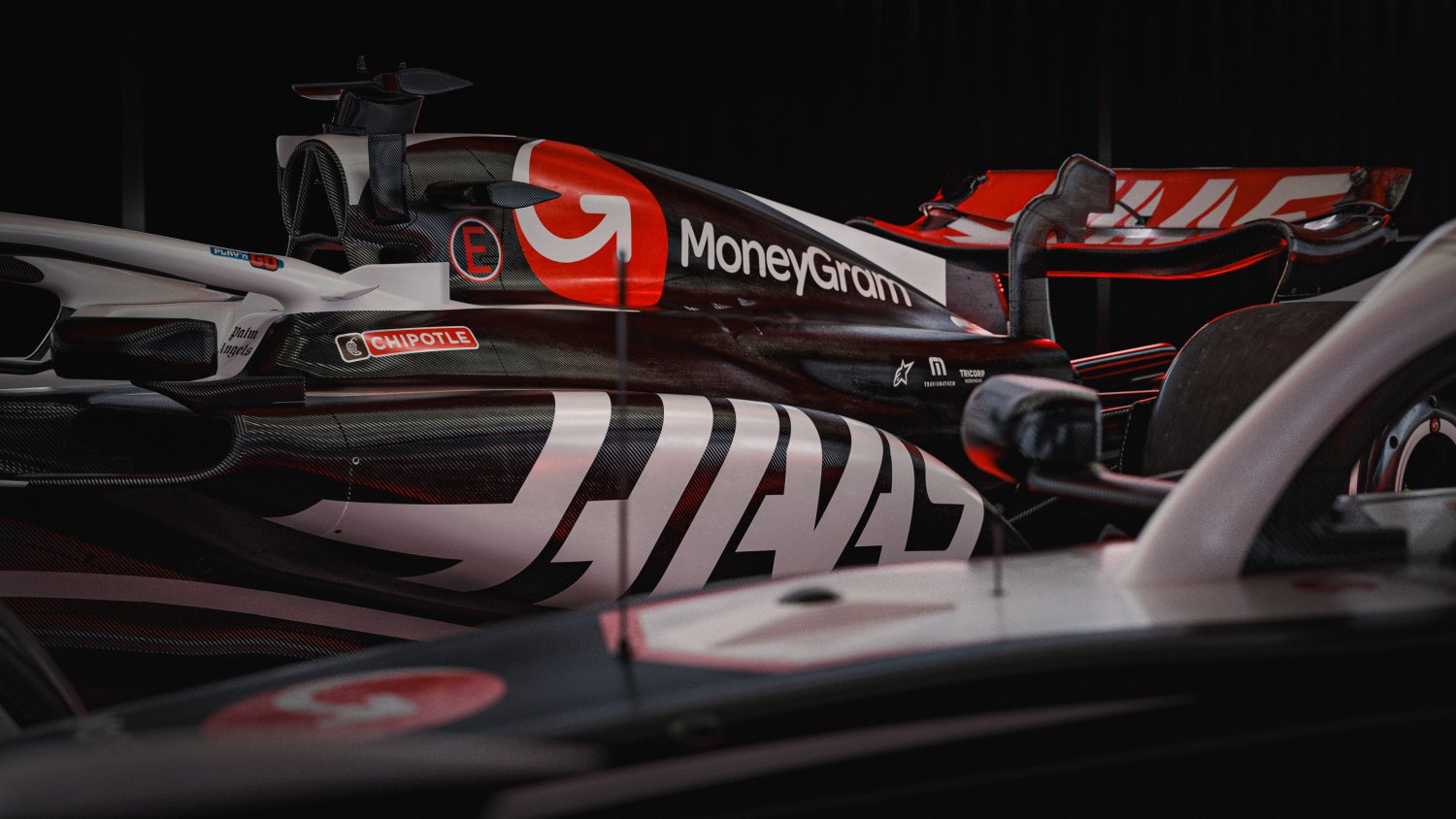
You’re now one month into the role, how have your first weeks as Team Principal of MoneyGram Haas F1 Team been?
“Obviously it’s been busy, but it’s been really positive. Everyone I speak to sees this as an opportunity to improve. I think many people were feeling the same thing – not knowing where this team was going, how it’s going to improve. We need a clear target, vision and communication, and to remove certain barriers that didn’t need to be there. Everyone needs to understand what they’re dealing with, how this team is moving forward, and our approach towards how we’re going racing.
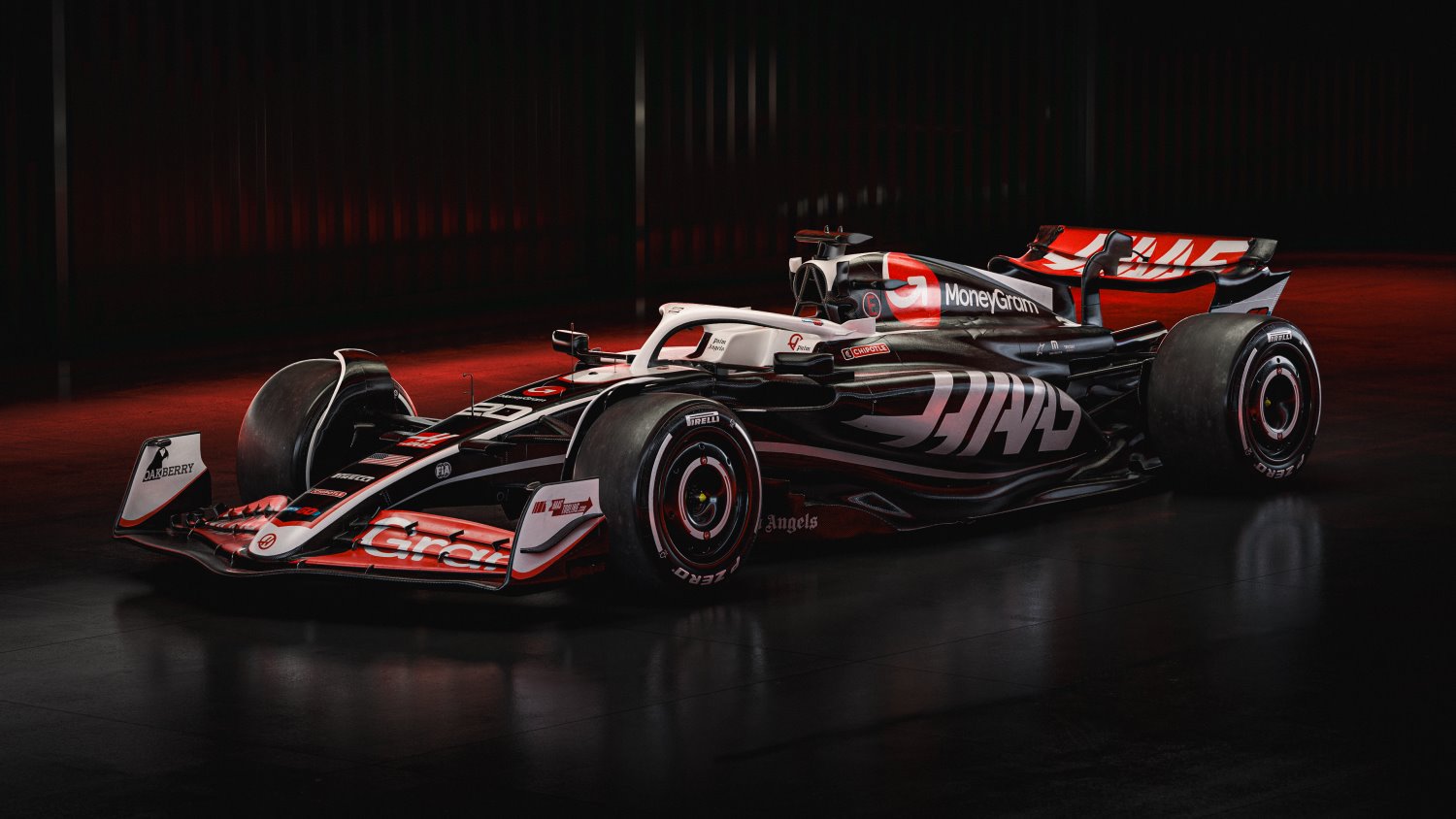
“I’m spending a lot of time talking with as many people as I can, sharing that approach and getting feedback. Obviously, I’m not trying to do this on my own, quite the opposite. We’ve got good people, so my job is providing an environment that they can flourish in and get the best out of them. Everyone is so helpful, motivated, and positive, it’s great.”
What can you share about updates to team personnel, specifically the likes of recruiting a new Technical Director and key design and engineering positions?
“Our new Technical Director is Andrea De Zordo. He was the Chief Designer previously and is a very technical person. His communication is good, he’s very engaged and he listens to people, so I’m very happy about that appointment. We are now recruiting for our Chief Designer, but I believe we have good internal candidates, so we’ll look to promote internally.
“Another key position is the Performance Director, this is a position that wasn’t there before, but we’ve created it putting Damien Brayshaw, previously the Head of Vehicle Performance Group, into the role. He will oversee and drive the direction for the upgrades together with the aero department and all the other functions that analyze the full-scale car, which is trackside engineering, the Vehicle Performance Group, Tire Group etc.
They’re the key changes – we’re getting everyone on board, talking together, and be a part of steering the ship.”
Assuming the role of Team Principal in January, has that impacted any preparations for the season ahead?
“It has impacted things, as it was announced on January 10, and we’re running our car for the first time on February 11 – that’s a pretty short timeframe. However, in terms of car build and preparation for the test, it wasn’t a problem operationally. It wasn’t just my role, we had a Technical Director leave as well, so there were two significant vacancies to fill. We formalized and communicated this structural change as soon as we could. The timing of this transition period was not ideal; however, I’ve been very impressed with the maturity of everyone’s reaction. Thanks to this, we were able to keep the disruption to the minimum. Now we’ve clarified the structure, we should be full steam ahead.”
What are the objectives for the season with the VF-24? Where do you expect the team to be out-the- gates and define the role the drivers can play in pushing car development in 2024?
“Out of the gates in Bahrain, like I said, I still think we’re going to be towards the back of the grid, if not last. Since I’ve become Team Principal, I’ve spent a lot of time talking to managers – both in the UK and Italy – and they’re excited because it’s an opportunity to improve and there are areas of improvement everywhere. The reason our launch-spec car is not going to be quick enough in Bahrain is not because of the quality of the people we have here, but it’s because we started late and then we stopped for two months to do the Austin upgrade. It really diverted resource, so we lost time there, but the team is finding good gains in the wind tunnel so that’s positive and in terms of characteristics, it’s going in the right direction.
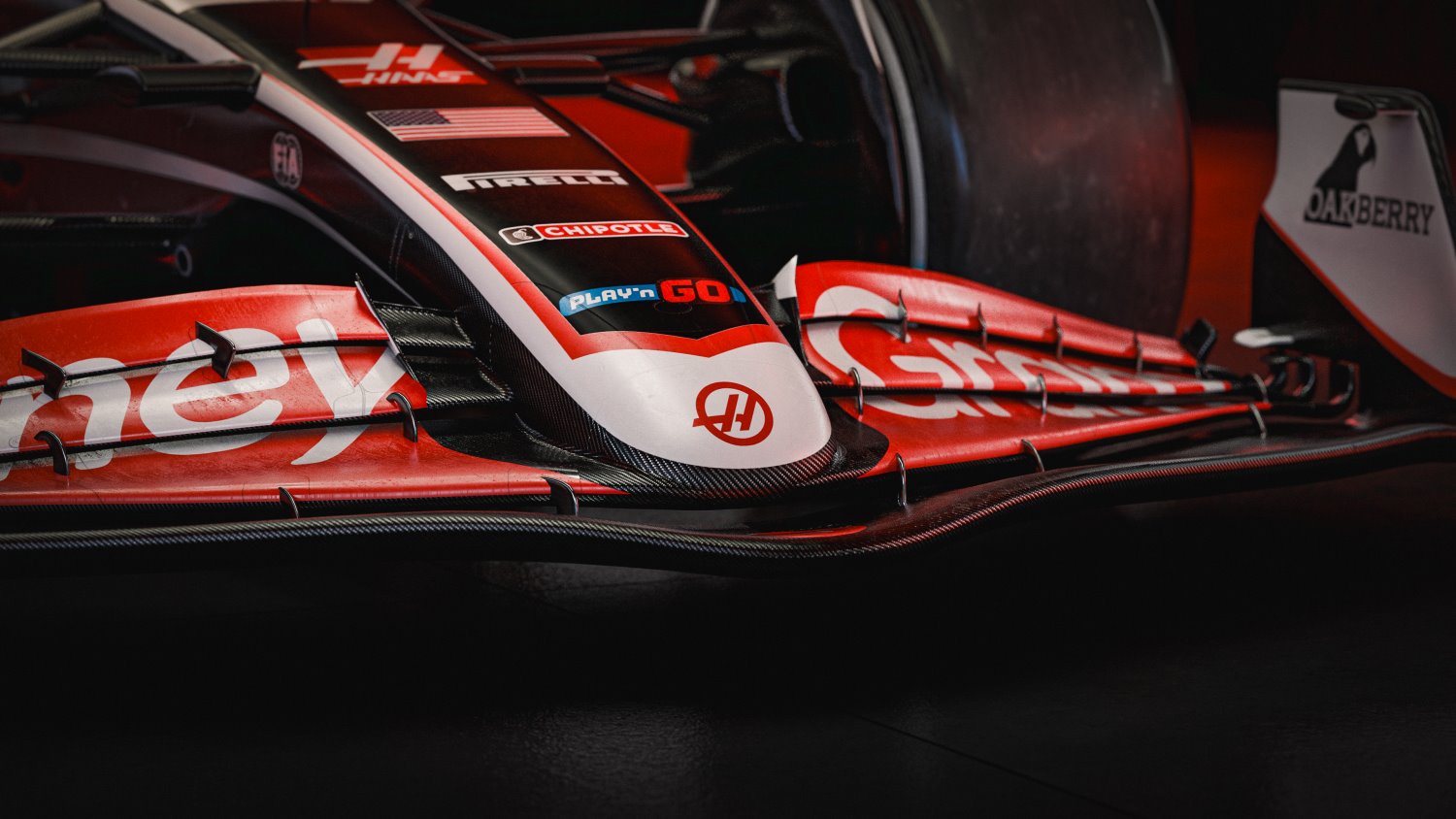
“The focus is to have a good test program for Bahrain so that we come away from the test having quality data for the team to analyze and understand which direction to develop the car. This means understanding the strength and weakness of the VF-24 accurately, then put a coherent plan together to produce updates on the car, which hasn’t happened previously.
“Drivers will play a stronger role too. Last year, in terms of subjective feedback from drivers, their understanding of what the weakness of the car was clear, however, we weren’t then able to reflect that in our car development program. With the changes we made in the team, we aim to address this issue with our drivers more in the loop of development paths so that nothing gets lost. As engineers we have all the data from many sensors, but the one thing we can’t do is drive the car and feel what’s going on. So, we’ve got to be able to understand and react to drivers’ feedback better.”
Will the VF-24 get the see the impact of your changes, or do you expect 2025 to be the first year you can influence the car?
“One of the things that we changed was how we shape the organizational structure so that as a team we work as one to understand the car and how to improve it. I’d like to think the very first thing we’ll see from the impact of this change will be the upgrade on the car.”
Reflecting back on 2023, the VF-23 performed well over one lap, but its weaknesses were highlighted throughout a race distance. Does the team fully understand those traits now and has it rectified them on its successor?
“Again, to understand the problem of the VF-23, creating the updated car in Austin was pretty useful. Mainly because when we split the cars and Nico went back to the previous spec while Kevin continued with the new, we could see the performance differences in varying speeds of corner. We got a lot of data from that, and that confirmed where we needed to concentrate our development for the VF-24.
“It was a big exercise to do, and it did delay our VF-24 development, but if we hadn’t done it and then had a huge surprise come pre-season testing, it would’ve hurt us immensely. It was a difficult balance, and doing the Austin package means the VF-24 launch car may not be as advanced as it could be, but at the same time we have better confidence in what we’re putting out on track now. We’re all realistic that our launch car in Bahrain will not necessarily turn heads, but our concentration and focus is to work with the VF-24, understand the car, and then define the correct pathway to upgrade the car.
“During the time it took to make the Austin-spec car, we had to stop resources to the VF-24 for two months, and that’s performance we could’ve found there. The team is recovering well, but you have to be realistic because our competitors are smart and they’re finding performance as well. We know how much we’ve gained since the end of the 2023 season, but I expect everyone else to be finding at least the same amount of gain. At least we should have a better base in the VF-24. With a better cohesion within the team to find performance, we can aim to bring upgrades relatively early on in the season.”
Addressing performance – there’s been a trend in previous seasons where the car starts off strong but falls behind in the second half of the season as competitors make further gains. Is there a strategy to stop that from happening this year with the VF-24?
“This is why we’re making changes to the organizational structure on the technical side to ensure that whatever we’re finding out on the track translates into car development.
“If you look at the organizational structure previously, there isn’t a clear path to close the loop on that side. Everything that’s found trackside, there’s now a closed loop going into the aero, wind tunnel and CFD departments. Now, at least even if there’s a disagreement, everyone is clear about why we’re developing the car in a certain way. That’s one key reason as to why we haven’t been able to put upgrades on the car and fall back in the season. We’re now already working in that way and there’s much better transparency, openness, and communication. Therefore, I believe we have a much better chance of upgrading the car properly this year.”